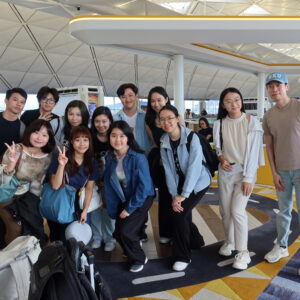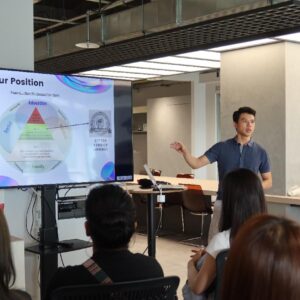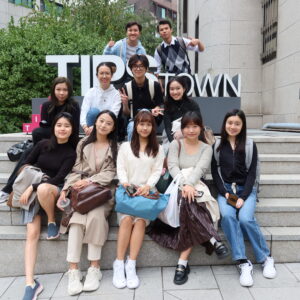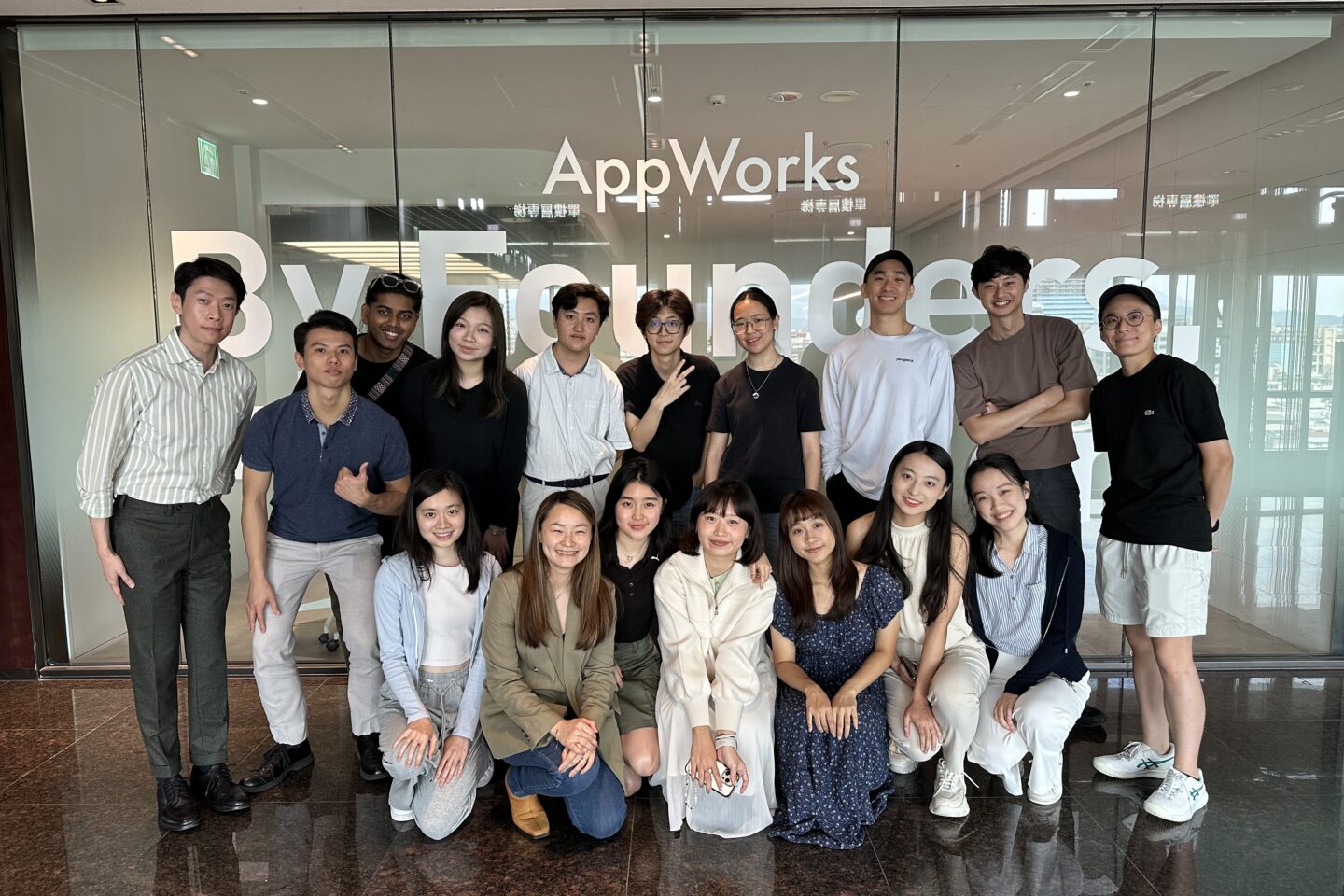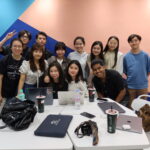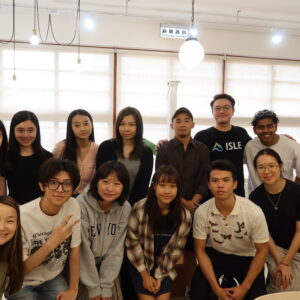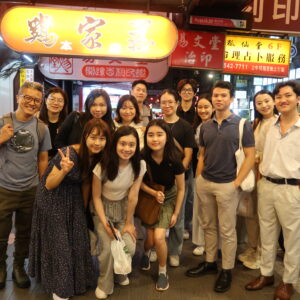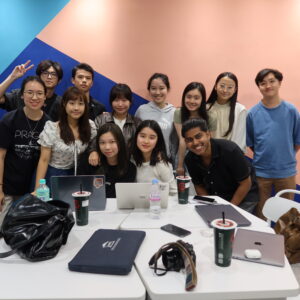1. Introduction
The study trip to Taipei and Seoul was truly eye-opening. It provided me with deeper insights into the world of Web 3.0 and entrepreneurship. Throughout this trip, I have learnt invaluable lessons from industry leaders and fellow students.
2. Overall Experience
Before embarking on this journey, I did not know a lot about Web 3.0 technology. My interactions with start-up CEOs were also non-existent, making me clueless about how they operate their companies. This time, I had the opportunity to meet and interact with successful entrepreneurs and experts in the field. These interactions were incredibly inspiring and provided a new perspective on the possibilities within the realm of Web 3.0 and entrepreneurship.
3. Learnings from Specific Events/Activities
- Seoul National University (SNU)
Among all the events, the day spent at SNU was exceptionally memorable. This precious chance to interact with students from another top-tier university was a great networking opportunity. The highlight of the day was a presentation by Joe Park, a guest speaker entrepreneur who shared how his company utilized Web 3.0 technology in Korea’s vaccine pass system during the COVID-19 pandemic. His talk was very informative and also demonstrated the practical applications of blockchain technology in addressing real-world challenges.
During Joe’s presentation, one quote that stood out to me was: “Everyone needs a reward.” This profound statement stressed the essence of a business model, which is to ensure that all stakeholders receive benefits. This insight was particularly relevant to our group’s project on Partial Common Ownership, which aimed at addressing the housing problem in Hong Kong. Joe’s words made us realize that we have to include rewards in our model to make it sustainable, helping us brainstorm and refine our project. - AppWorks Presentation
Another memorable experience was the presentation at AppWorks. Although I was not a presenter, getting to observe my companions’ presentations was a precious experience. I was mesmerized by their fluency and confidence when they presented their business models. The staffs at AppWorks were highly knowledgeable and critical, providing valuable feedback that helped us refine our business model. Our group had a valuable conversation with an employee named Johnny, in which he suggested we provide more quantitative information. This feedback was crucial in shaping our final draft outline, where we incorporated more data to support our model. During our conversation, we told him that we were concerned about the practicality and sustainability of our model. He was kind enough to assure us that our model was a valid idea, making us feel more confident in what we were doing.
4. Change in Perception
Before this trip, I always thought that building a start-up was an incredibly challenging task reserved for the chosen ones. However, after getting to know the stories of young CEOs who are university students just like us, my perception changed. Their stories demonstrated that with determination and the right resources, anyone can build a start-up. Additionally, I learned how governments and organizations facilitate the growth of start-ups by implementing various policies. For instance, our visit to the Korea Institute of Start-up & Entrepreneurship Development (KISED) showed that the Korean government substantially supports start-ups through funding and favourable tax policies. These policies create a friendly and suitable environment for them to thrive and grow. Moreover, there are favourable policies for foreigners who wish to start start-ups in Korea, making Korea an attractive destination for entrepreneurs.
5. Personal Growth
One of the most significant lessons I learned from this trip is that it is never too late to start. Many of the start-up CEOs we met had humble beginnings and prototypical dreams, but they made them happen through hard work and perseverance. This realization reinforced the idea that nothing is impossible with a willing heart.
Additionally, I gained valuable technical skills and knowledge about Web 3.0 and blockchain technology. Before the trip, these concepts were super vague to me, but the discussions throughout the trip helped me understand how Web 3.0 is practically applied. For example,
Joe Park’s presentation on the vaccine pass system in Korea showcased how blockchain could be used to solve real-world problems, providing a clear and practical illustration of the technology.
Apart from the technical aspects, the trip also facilitated personal growth. Initially, I was afraid to travel with people I wasn’t familiar with, as I had no confidence in connecting with them. But soon, the shared experiences and engaging conversations during the trip forged strong friendships. We discussed various topics, from our personal dreams to philosophical questions like whether destiny is fixed or if we live by our free will. These deep conversations were incredibly fulfilling and helped me understand different perspectives. Overall, I enjoyed every moment spent with this bunch of people, especially all those chaotic peals of laughter and inspiring conversations.
6. Comparison Between Hong Kong, Taipei, and Seoul
The trip provided an opportunity to compare the start-up ecosystems and Web 3.0 developments in Taipei, and Seoul with Hong Kong. I would say. from my observation, each city has its unique strengths, but all are making significant strides in fostering innovation and entrepreneurship.
- Hong Kong
Hong Kong is known for its robust financial infrastructure and international business environment, providing a solid foundation for start-ups, particularly those focused on fintech and blockchain applications. Cyberport and Science Park are also expanding, creating more opportunities for technological start-ups to thrive. Regarding governmental development, I have observed a growing interest from the government in Web 3.0 and blockchain technology in recent years. With the support of favourable Web 3.0 policies, such as the Sustainable Bond Programme (Green Bond), I hope that Hong Kong will continue to advance in this sector, establishing itself as a hub for Web 3.0. - Taipei
Taipei impressed me with its vibrant and supportive start-up ecosystem. Organizations like AppWorks play a crucial role in nurturing start-ups, providing not only funding but also mentorship and networking opportunities. Taiwan’s renowned position in hardware has also attracted people to develop their projects here. With the government being proactive in supporting software innovation, various policies and initiatives have been implemented to foster the growth of tech start-ups. The city offers a collaborative and innovative atmosphere, making it an attractive destination for entrepreneurs. - Seoul
Seoul has strong governmental support for start-ups. The visit to the KISED highlighted the extensive resources available to entrepreneurs, including funding, favourable tax policies, and support for foreign entrepreneurs. This supportive environment has led to a thriving start-up ecosystem, particularly in tech and Web 3.0 innovations.
The comparison between Hong Kong, Taipei, and Seoul highlighted the unique strengths and challenges of each city’s start-up ecosystem. While Hong Kong offers a strong financial foundation, Taipei provides a vibrant and supportive environment, and Seoul excels in governmental support for innovation.
Conclusion
In conclusion, the study trip to Taipei and Seoul was a transformative experience that broadened my understanding of Web 3.0 and entrepreneurship. The interactions with industry leaders, insightful presentations, and deep conversations with fellow students provided a wealth of knowledge and inspiration. The trip not only enhanced my knowledge but also facilitated personal growth through the meaningful connections formed with my classmates.

